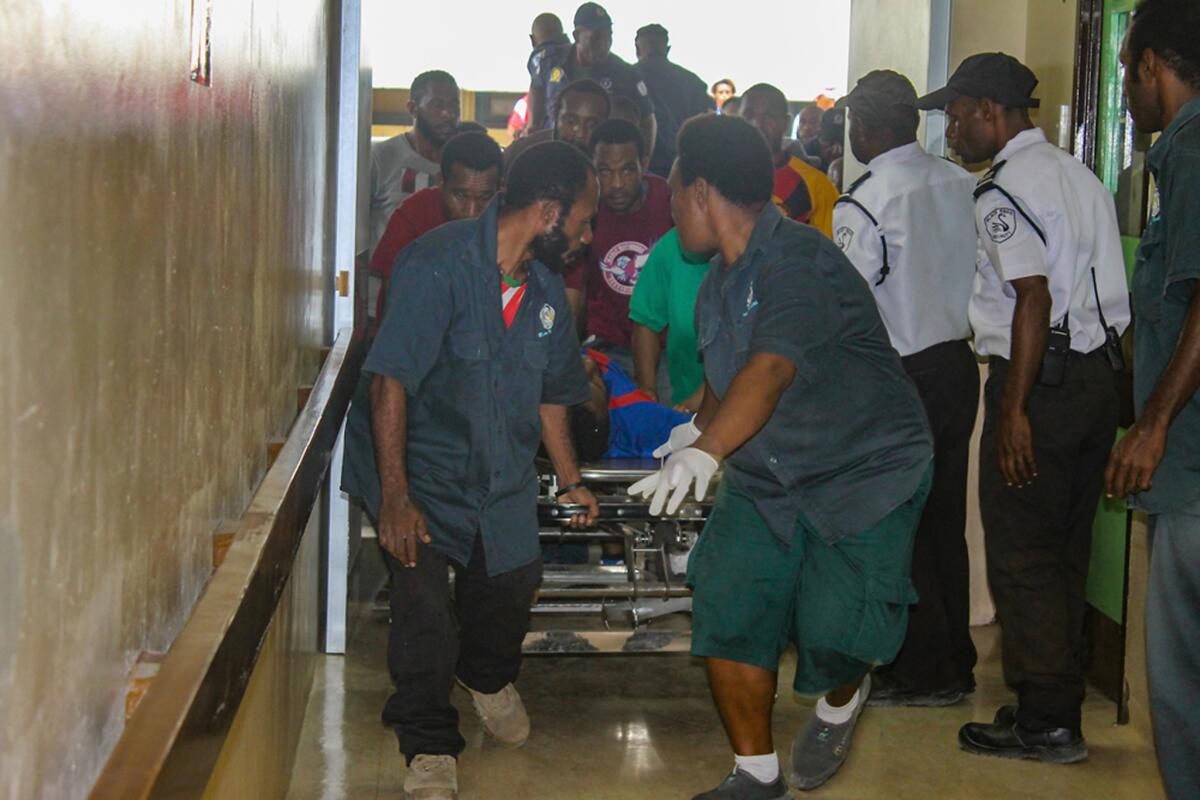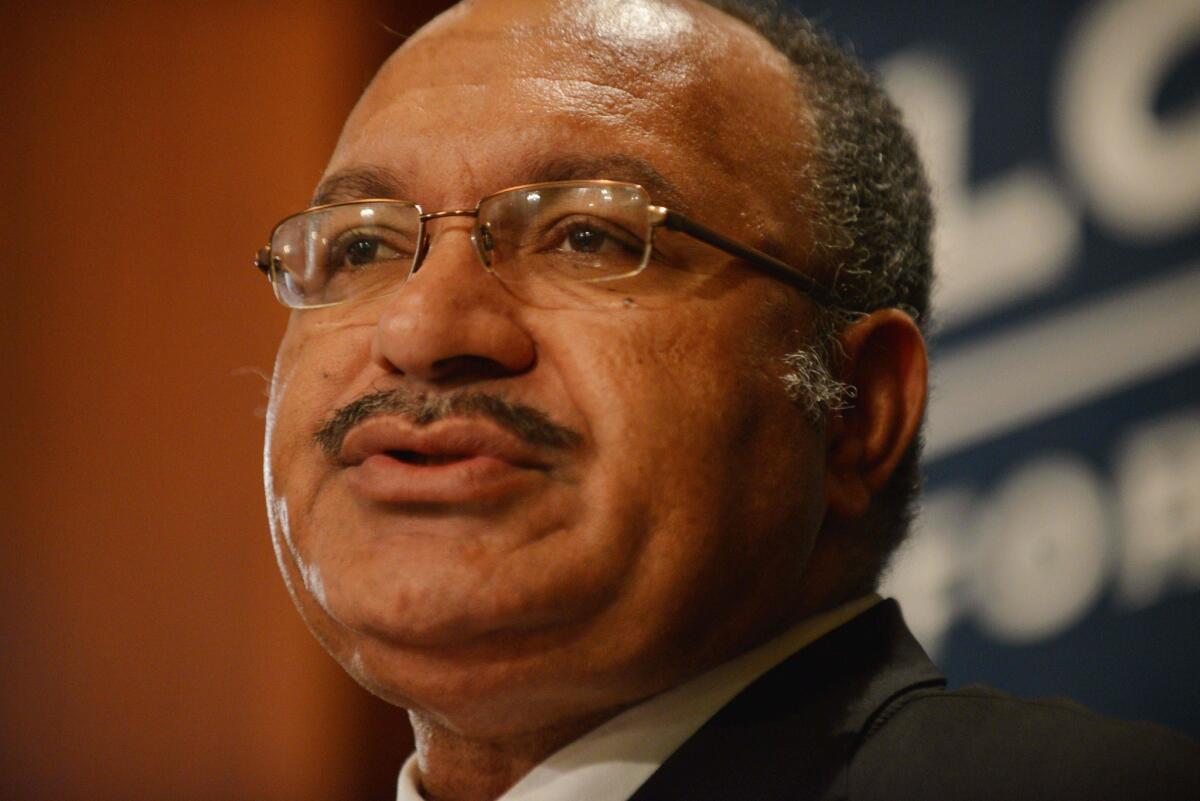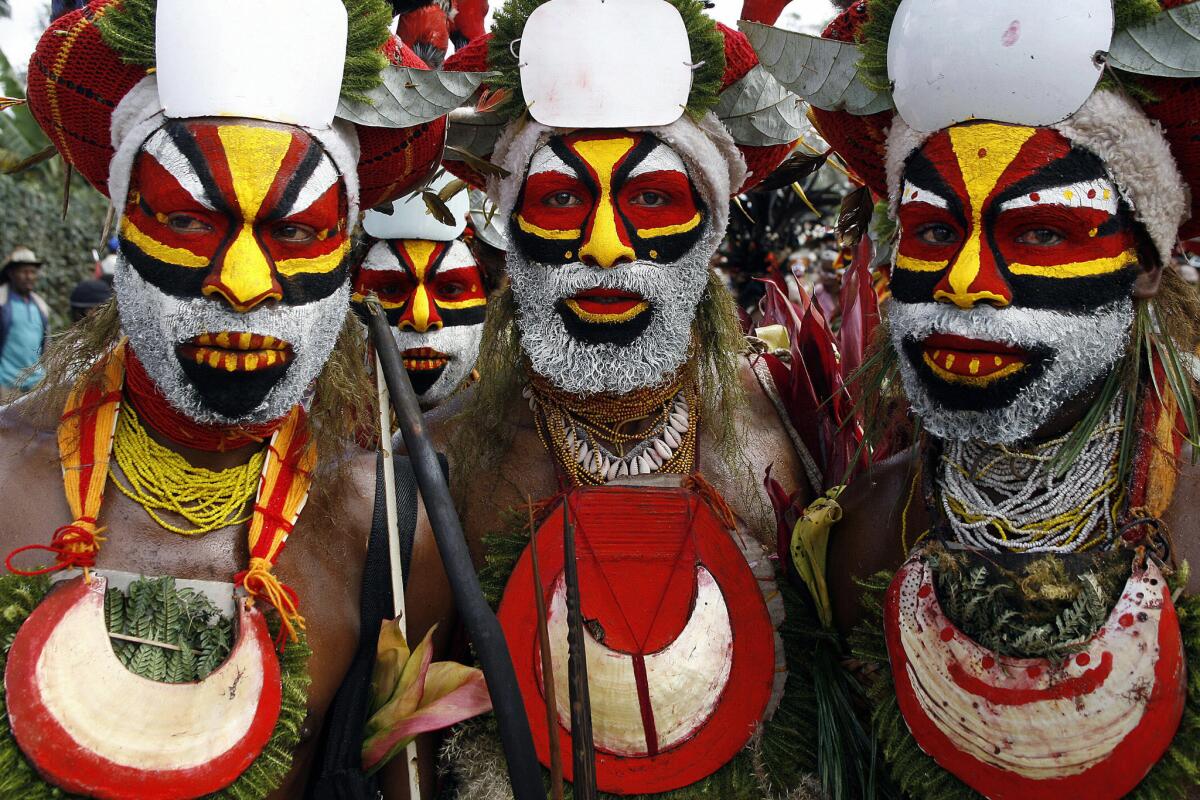Bloody protests and calls for prime minister to resign — Papua New Guinea feels the strain
Tensions remained strained between students, the government and law enforcement officials in Papua New Guinea following the brutal crackdown on street protests aimed at forcing the island’s prime minister to resign.
Since early May, students at the University of Papua New Guinea have led demonstrations, boycotted classes and submitted petitions calling on Prime Minister Peter O’Neill to step down over corruption allegations.
The unrest peaked when police opened fire Wednesday on a crowd of students as they tried to march to parliament to support a planned no-confidence vote against O’Neill, according to Radio New Zealand and other news reports. Almost two dozen students were injured in the mayhem, including four who were shot, according to Reuters news agency.

Analysts said the unrest, which by some media accounts appeared to be spreading among students, exposes deeper problems on the island of 7.3 million.
“It has revealed serious flaws in PNG’s democracy and the increasingly authoritarian tendencies of the PNG government,” Jenny Hayward-Jones, a nonresident fellow for the Melanesia Program at the Lowy Institute for International Policy in Sydney, Australia, said in an email.
The anticorruption agency Transparency International Papua New Guinea said in a statement that the use of gunfire against the students signaled that the country was “being dragged into chaos by people who apparently expect impunity from the law.”
“The public must be reminded that government’s power is for the people, by the people and of the people.” Kenneth Rapa, president of the University of Papua New Guinea Student Representative Council that has led the protests, said in a statement published online Sunday. “The public has every right to question such abuse of power.”
So how did it come to this?
Simply put, the students want O’Neill to go.
The embattled prime minister came to power in 2011 pledging to tackle corruption but by 2014 a warrant had been issued for his arrest after the country’s anticorruption agency, TaskForce Sweep, accused him of authorizing millions in fraudulent payments to a leading legal firm, the BBC reported.
O’Neill has managed to avoid being arrested and has refused to resign. He describes the corruption allegations as being of “questionable political intent,” according to the Australian Broadcasting Corp.

O’Neill abolished the anticorruption task-force, which he established himself, as soon it began to investigate him and sacked a police commissioner and magistrate, according to Hayward-Jones. The leaders of the task force have now been reinstated by court order—twice, but the government has since suspended parliament to block the no-confidence vote.
The press has also been stifled, sometimes through self-censorship. Of the two major newspapers, “one is uncritical of government and the other is often intimidated by government,” Hayward- Jones said. And prominent bloggers who are critical of government have been threatened with criminal charges and censorship.
So what is the standard of living in Papua New Guinea?
Poverty has increased sharply since the mid-1990s and the nation’s level of income inequality is the highest in the Asia-Pacific region, despite the nation’s wealth of mineral resources, according to Oxfam Australia, an aid and development organization.
This month the United Nations World Food Program, in partnership with CARE International and provincial authorities in Papua New Guinea, announced that it would distribute food in the country’s Highlands Region, which has experienced drought and periodic frost conditions that hindered families from harvesting crops. Some 180,000 people are in urgent need of food, the agency said.
And as many as 60% of the people are without safe water, according to WaterAid, an international nonprofit. The poorest of the poor pay as much as 54% of their daily earnings for what’s considered a minimum daily allotment – 13 gallons.
Papua New Guinea is considered the most linguistically diverse country in the world, with more than 800 languages spoken, according to the World Bank. But as a result, the education system faces challenges and the literacy rate is less than 60%.

What is Papua New Guinea’s record on human rights?
Not good, according to human rights advocates.
“In general there is a high level of violence across the board, in particular gender-based, and violence related to sorcery and other cultural practices,” said Kate Schuetze, Pacific Researcher for Amnesty International.
Amnesty’s current report for Papua New Guinea notes that in recent years legal reforms have sputtered and few gains have been made in improving social services, access to healthcare and women’s rights.
In its 2015 world report, Human Rights Watch described Papua New Guinea as “one of the most dangerous places in the world to be a woman, with an estimated 70% of women experiencing rape or assault in their lifetime.”
See more of our top stories on Facebook »
The country also has a reputation for excessive use of force by police and the military, according to Amnesty.
“There is not really the accountability to investigate and prosecute the police individually or to discipline them,” Schuetze said.
What now?
The prime minister originally blamed the students for the violence, denying that police had targeted those protesting, but later acknowledged that authorities could have handled things better.
The government, the police, and Papua New Guinea’s Ombudsman Commission--an independent body with the power to sanction government employees and elected representatives--have all promised to investigate the shootings at last week’s protests, according to the Australian Broadcasting Corp.
Hayward-Jones said while the announcement was welcome, it was unclear whether the prime minister would take it seriously. And it seemed unlikely that students would change their stance that O’Neill should step aside.
ALSO
23 injured as police and students clash in Papua New Guinea
Canadian hostage is beheaded in Philippines, officials confirm
A rebellion inside a small Indian sect seeks to end a brutal custom: female genital mutilation
More to Read
Start your day right
Sign up for Essential California for news, features and recommendations from the L.A. Times and beyond in your inbox six days a week.
You may occasionally receive promotional content from the Los Angeles Times.







